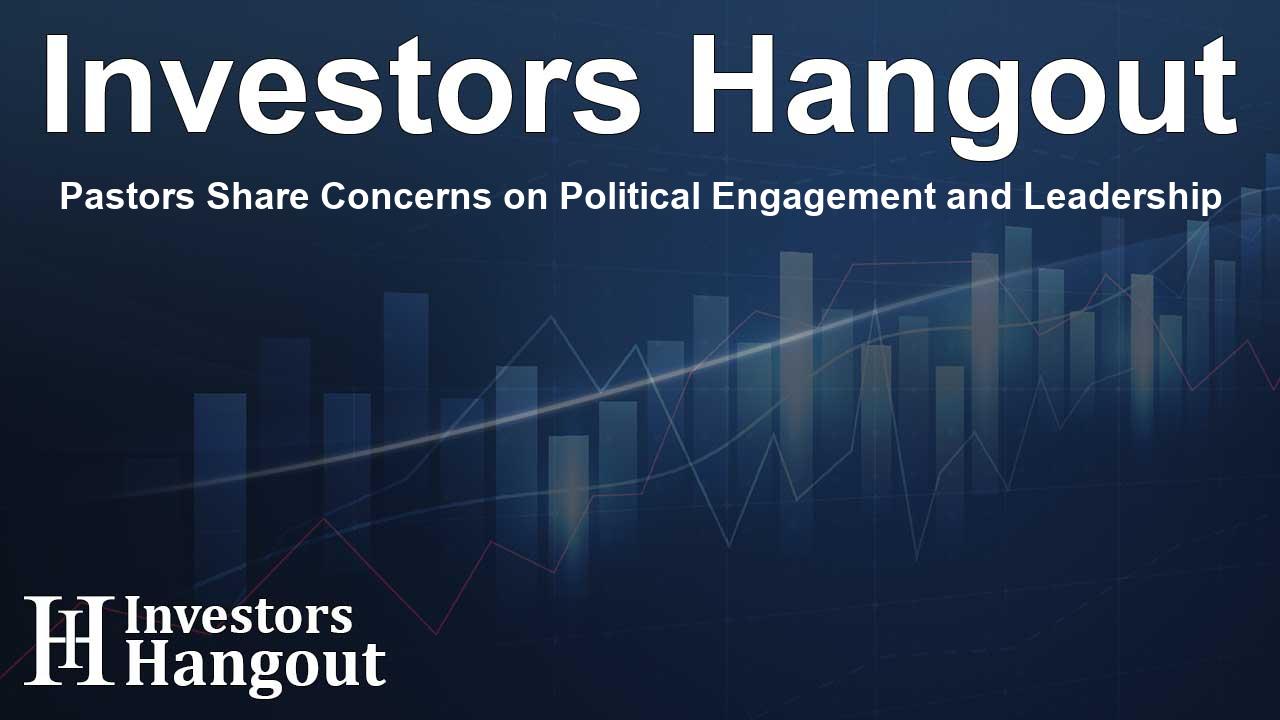Pastors Share Concerns on Political Engagement and Leadership

Understanding the Challenges Pastors Face Today
Current trends within church leadership reveal a pressing need for pastors to develop their skills, particularly regarding political engagement. Through comprehensive research conducted under the State of the Church initiative, it’s evident that many pastors feel ill-equipped to address political topics which are increasingly relevant in today’s societal landscape.
The Impact of Political Climate on Church Leadership
The ongoing cultural and political polarization has created additional layers of complexity for pastors. According to recent findings, many church leaders express that they lack the resources or training necessary to guide their congregations through politically charged discussions. This gap in preparation highlights a larger issue within church leadership where political engagement is often perceived as a daunting challenge.
Research Insights on Pastor Preparedness
As churches aim to provide a safe space for discourse, the research led by Gloo and Barna Group has gathered insightful data regarding how pastors view their roles in political conversations. Approximately 20% of pastors feel competent to lead discussions around politics and civic involvement, indicating a significant number who remain hesitant in this area.
Shifts in Definitions of Success Among Pastors
Another fascinating aspect uncovered by the research is how pastors are reevaluating what success means for their ministries. Instead of measuring success by the size of their congregations, an overwhelming 92% of pastors now prioritize the depth of engagement and commitment within their communities. This shift can play a crucial role in how they approach discussions, including those surrounding politics.
Addressing the Gaps Through Training and Succession Planning
In addition to understanding how pastors define success, addressing burnout and improving future leadership training is essential. The pressures felt by younger pastors—specifically those aged 44 and under—are becoming more pronounced, leading to heightened mental exhaustion. As a result, the importance of creating training programs geared towards combating this burnout and fostering leadership succession cannot be overstated.
Trust in Church Leadership
The sense of trustworthiness in church leadership also stands out in the findings. While 54% of churched adults rated their leaders as trustworthy, there remains a critical need for pastors to build and maintain this trust through transparent and effective leadership during tumultuous times.
Future Directions for Church Leaders
This comprehensive research emphasizes that as pastors navigate modern challenges, they need support systems that equip them to foster unity and thrive. Barna Group and Gloo’s commitment to providing ongoing research and resources will give church leaders tools to adapt to their changing roles.
Looking forward, upcoming research will delve deeper into how Christians relate to each other and engage with their communities, amplifying the importance of relational dynamics in ministry. It will provide leaders with more context as they navigate their evolving responsibilities.
Frequently Asked Questions
What did the latest research reveal about pastors and politics?
The research indicated that only about 20% of pastors feel equipped to lead discussions on politics and civic engagement, highlighting significant concerns in this area.
How are pastors measuring success differently?
Pastors have shifted their focus from church size to the depth of engagement and commitment, thus redefining success in their ministries.
What challenges are younger pastors facing?
Younger pastors, particularly those under 44, report feeling greater pressure and higher levels of mental exhaustion compared to their older counterparts.
What role does training play in addressing pastoral burnout?
Effective training programs are crucial for preventing burnout and preparing future church leaders to handle the stresses of modern ministry.
How can church leaders build trust within their communities?
Church leaders can build trust by fostering transparency, delivering engaging sermons, and involving the congregation in community discussions.
About Investors Hangout
Investors Hangout is a leading online stock forum for financial discussion and learning, offering a wide range of free tools and resources. It draws in traders of all levels, who exchange market knowledge, investigate trading tactics, and keep an eye on industry developments in real time. Featuring financial articles, stock message boards, quotes, charts, company profiles, and live news updates. Through cooperative learning and a wealth of informational resources, it helps users from novices creating their first portfolios to experts honing their techniques. Join Investors Hangout today: https://investorshangout.com/
Disclaimer: The content of this article is solely for general informational purposes only; it does not represent legal, financial, or investment advice. Investors Hangout does not offer financial advice; the author is not a licensed financial advisor. Consult a qualified advisor before making any financial or investment decisions based on this article. The author's interpretation of publicly available data shapes the opinions presented here; as a result, they should not be taken as advice to purchase, sell, or hold any securities mentioned or any other investments. The author does not guarantee the accuracy, completeness, or timeliness of any material, providing it "as is." Information and market conditions may change; past performance is not indicative of future outcomes. If any of the material offered here is inaccurate, please contact us for corrections.